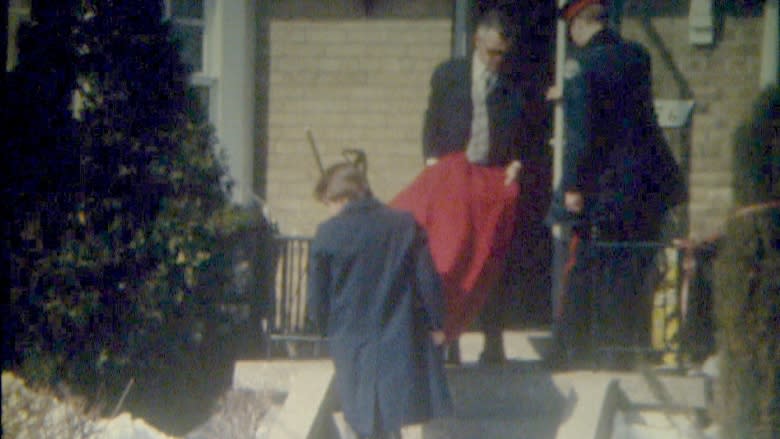High-profile cases like the Sherman deaths no easier to solve for police, experts say
It was surely a horrifying scene: Two victims, a husband and wife, both found dead inside their home in a wealthy Toronto neighbourhood.
While that setting calls to mind the shocking deaths of billionaire couple Barry and Honey Sherman at their North York mansion in December — a case police are calling a "suspicious death investigation" — it's also the circumstances of a cold case from 1978.
One morning in March that year, police responded to a 911 call at a home on Dewbourne Avenue near Flanders Road in the city's posh Forest Hill neighbourhood. Inside the house, investigators made a gruesome discovery: The bodies of 64-year-old Harold Fagan and his wife, 63-year-old Florence Fagan, both with gunshot wounds.
As The Ottawa Journal reported soon after, police treated the deaths of the successful Toronto businessman and his wife as a double murder.
Much like the mysterious Sherman case, the Fagan murders gripped the city — but four decades later, the high-profile case still hasn't been solved.
Despite the overwhelming public interest in police investigations involving prominent community members, experts say answers in high-profile cases don't always come quickly. These cases also come with their own set of challenges, according to current and former police officers, be it increased public scrutiny or a larger, more time-consuming investigation stemming from the victims' large social networks.
"When you have high-profile cases, they garner more media attention, they garner more attention from the public, and everyone's talking about them because it was someone that was well-known or someone that was rich and famous," explained Det.-Sgt. Stacy Gallant, who handles cold cases with Toronto police's homicide squad.
But when someone has an extensive network of friends and family in Toronto and beyond, "then you have more interviews to do, you have more people to contact, you have more to investigate," he said.
'It takes time sometimes'
A year after the Fagan murders, another prominent Toronto family was struck by tragedy. Just minutes away from the Fagan home, three members of the Airst family — Isaac and Celia Airst, and their son, Avrom — were found bludgeoned to death inside their home in the Glencairn Avenue and Englemount Avenue area.
To this day, that high-profile case also remains unsolved.
While Gallant said there are no updates in either of those four-decade-old cases, he stressed that investigators treat all cases with the same level of care, high-profile or not. Some, he added, just take longer than others.
The unique aspects of high-profile cases can also complicate already challenging investigations.
"It relies on evidence, on what [police are] presented with at the crime scene and what evidence they're able to obtain throughout their investigation," said Dave Perry, a former veteran Toronto police detective who's now CEO of Investigative Solutions Network Inc., a private investigation firm headquartered in Pickering, Ont.
When a case becomes high-profile, there's extra time pressure, Perry added. "It's not just the police, it's the public, it's the media, and it's of course the victims' families who want answers, and they want them right now," he said.
The immediate families of well-connected crime victims typically cooperate with police investigations, but others — including witnesses — are often more hesitant to come forward with information, said retired police officer Michael Arntfield, a professor and criminologist at Western University and director of the Western Cold Case Society.
"For all the tools like DNA and phenotyping and touch DNA and ballistics and blood splatters and all the new technologies police have at their disposals, at the end of the day, they're often still reliant on human witnesses," he said.
And when witnesses and evidence are lacking, it's hard to figure out what really happened. But, according to Gallant, a lack of answers provided to the public doesn't mean police aren't working behind the scenes.
He cited the case of Glen Davis, a wealthy environmental philanthropist who was gunned down in an underground parking garage over his lunch hour in 2007.
It took several years to solve the case, Gallant noted, but in the end, Davis' godson pleaded guilty to planning his shooting death.
"It takes time sometimes," Gallant said.



